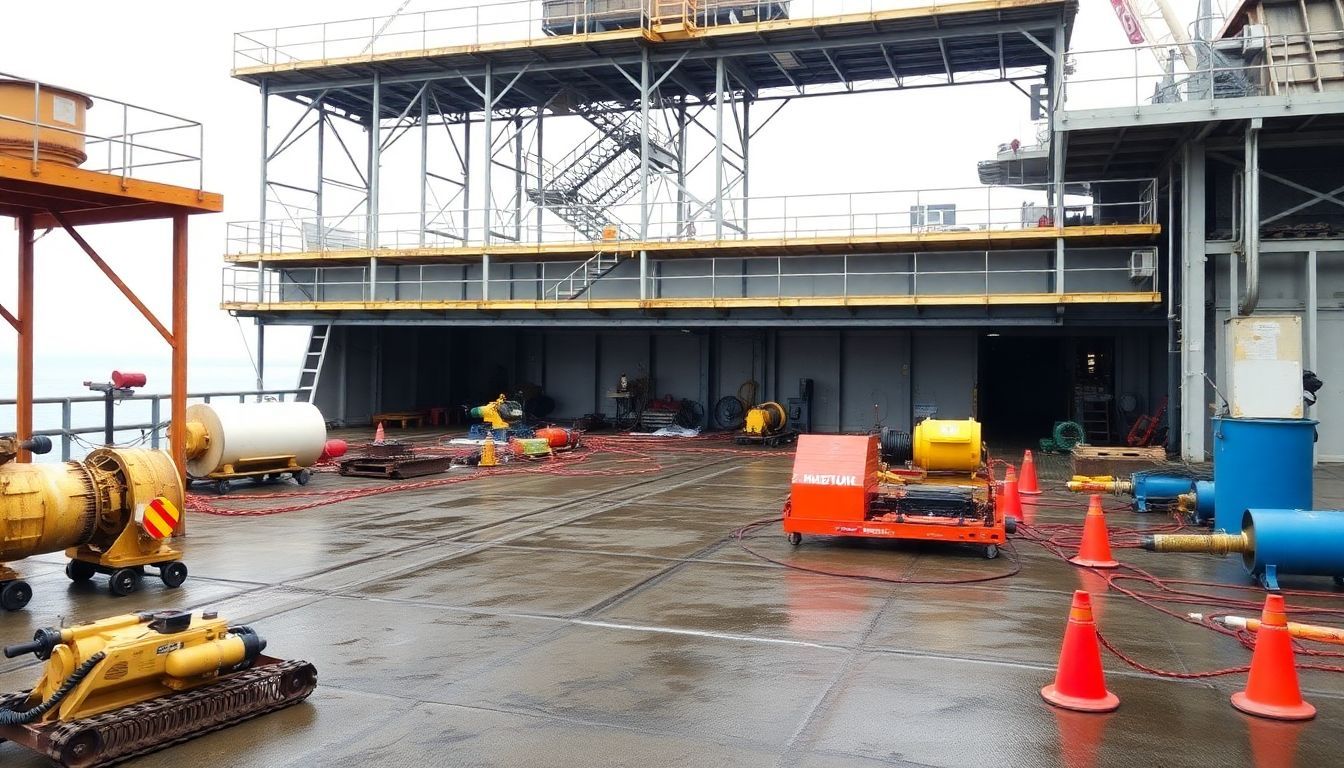Offshore construction accidents can leave victims facing huge medical bills and lost wages. Each year, hundreds of workers suffer injuries on oil rigs and platforms. This article explains your legal rights and how to get fair compensation after an offshore accident.
Learn how maritime lawyers can help you recover damages.
Key Takeaways
- Offshore construction accidents often involve falls, machinery mishaps, and chemical exposure. Victims can seek compensation for medical bills, lost wages, and pain under laws like the Jones Act.
- Multiple parties may be liable in offshore accidents, including site owners, equipment makers, and other companies. Maritime lawyers investigate to determine fault and build strong cases.
- Injured workers should get medical care, report the accident, gather evidence, and contact a lawyer quickly. The statute of limitations is 3 years for Jones Act claims and 1 year for Longshore Act claims.
- Free consultations let victims discuss their case with expert maritime lawyers at no cost. Firms like BoatLaw, LLP offer 24/7 access to legal help after offshore accidents occur.
- Notable settlements include $8 million for a wrongful death case and $10 million for a traumatic brain injury. These results show maritime lawyers’ ability to secure substantial compensation for victims.
Common Types of Offshore Construction Accidents

Offshore construction sites present unique hazards for workers. Understanding common accident types can help improve safety measures and prevent injuries.
- Falls from heights: Workers face risks when working on scaffolding or ships’ decks. Proper safety gear and protocols are crucial to prevent these accidents.
- Slips and falls: Wet or uneven surfaces on offshore platforms increase the chance of slips. Regular maintenance and non-slip coatings can reduce these incidents.
- Machinery accidents: Heavy equipment can cause severe injuries if not used correctly. Proper training and safety guards are essential to avoid entrapment or crushing.
- Lifting injuries: Moving heavy materials often leads to strains or sprains. Using proper lifting techniques and equipment can prevent these injuries.
- Chemical exposure: Harmful substances pose serious health risks to workers. Protective gear and proper handling procedures are vital to avoid exposure.
- Drowning incidents: Working near water creates a constant drowning risk. Life jackets and rescue equipment must be readily available at all times.
Potential Liable Parties in Offshore Construction Accidents
Moving from common types of offshore accidents, we now explore who might be responsible for these incidents. Several parties could be liable in offshore construction accidents. Ship or construction site owners often bear responsibility for maintaining safe work environments.
Equipment manufacturers may be at fault if their products fail or cause harm. Other project companies working on the site might also share blame for accidents. In some cases, co-workers’ negligence can lead to injuries.
Our firm has seen firsthand how complex these cases can be, often involving multiple liable parties.
Determining liability in maritime accidents requires careful investigation and legal expertise. Each party’s role in the accident must be examined to establish fault. This process often involves reviewing contracts, safety protocols, and witness statements.
Our team has successfully handled many shipyard accident cases, holding responsible parties accountable for our clients’ injuries. We’ve found that thorough evidence gathering is key to building strong cases against liable parties in offshore construction injuries.
Legal Rights of Offshore Construction Accident Victims
Offshore construction workers face unique risks, but they also have strong legal protections. Victims of offshore accidents can file lawsuits based on negligence and unseaworthiness under the Jones Act.
This law gives maritime workers the right to sue their employers for unsafe working conditions or faulty equipment. Injured workers can seek damages for medical bills, lost wages, and pain and suffering.
They may also get “maintenance and cure” payments to cover living costs during recovery.
Time limits apply for filing claims, so quick action is key. The statute of limitations under the Jones Act is three years from the date of injury. This means victims must start their legal case within that window.
Offshore workers should know their rights and talk to a lawyer right away after an accident. Getting expert help can make a big difference in the outcome of a claim.
Types of Compensation Available, Including Tug Boat Accident Injuries
Victims of tug boat accidents may seek various types of compensation. These include lost wages, both past and future, to cover income lost due to injuries. Medical expenses for treatment and ongoing care are also recoverable.
Pain and suffering damages aim to compensate for physical and emotional distress. In tragic cases of wrongful death, families can pursue funeral costs, financial support, and lost future earnings.
Fair compensation is crucial for maritime accident victims to rebuild their lives and secure their futures.
Legal options exist to help injured workers recover financially after tug boat accidents. An experienced maritime lawyer can assess each case to determine which damages apply. They work to maximize compensation and hold negligent parties accountable.
Prompt action is key, as time limits may restrict when claims can be filed.
Steps to Take After an Offshore Construction Accident
Offshore construction accidents can have serious consequences. Taking appropriate actions after an accident is essential for your health and legal rights.
- Get medical care: Seek immediate medical attention for any injuries. Your health is the top priority, and prompt treatment can prevent further harm.
- Report the accident: Inform your supervisor or employer about the incident. This creates an official record and starts the process for potential compensation.
- Document the scene: Take photos or videos of the accident site if possible. This evidence can be important for your case later on.
- Gather witness information: Collect names and contact details of anyone who saw the accident. Their statements can support your claim.
- Keep medical records: Save all documents related to your treatment. This includes doctor’s notes, test results, and bills.
- Preserve evidence: Keep any damaged equipment or clothing from the accident. These items may serve as important proof in your case.
- File a detailed report: Write down everything you recall about the accident. Include dates, times, and specific details while they’re fresh in your mind.
- Seek legal advice: Contact a maritime lawyer who specializes in offshore accidents. They can guide you through the legal process and protect your rights.
How Maritime Lawyers Can Assist
Maritime lawyers play a key role in helping offshore construction accident victims. These experts know the ins and outs of maritime law, including the Jones Act and Longshore and Harbor Workers’ Compensation Act.
They fight for fair settlements and deal with big insurance companies on behalf of their clients. Our firm’s lawyers have years of experience in this field and have won many cases for our clients.
Getting legal help can make a big difference in the outcome of your case. Maritime lawyers offer free talks to review your case and explain your rights. They work hard to get you the most money possible for your injuries.
Our team has helped many workers get full payment for medical bills, lost wages, and pain and suffering. We know how to prove fault and build strong cases that get results.
Additional Legal Considerations
Offshore workers face unique legal challenges. Maritime laws like the Jones Act and the Longshore and Harbor Workers’ Compensation Act protect workers’ rights.
The Jones Act
The Jones Act protects maritime workers who get hurt on the job. This law lets injured workers seek money for their losses. Workers can file claims within three years of their injury.
They can ask for lost wages, medical bills, and pain costs. If a worker dies, their family can claim funeral expenses too.
Employers must keep work areas safe under the Jones Act. If they don’t, they can be held responsible for injuries. The law covers many types of offshore workers. It applies to those on ships, oil rigs, and other sea vessels.
Injured workers should talk to a maritime lawyer to understand their rights.
Longshore and Harbor Workers’ Compensation Act
The Longshore and Harbor Workers’ Compensation Act helps maritime workers who get hurt on the job. This law gives money and medical care to people injured in specific places near water.
Workers can get different types of pay based on how bad their injury is. For example, they might get temporary or permanent disability benefits. If a worker dies from their injury, their family can also get money.
Workers must tell their boss about any job injuries within 30 days. If they wait too long, they might not get help. I once saw a coworker lose out on benefits because he didn’t report his injury fast enough.
It’s crucial to speak up right away if you get hurt at work on the water.
Statute of Limitations
Legal time limits play a crucial role in offshore construction accident cases. Victims must file their claims within set periods to protect their rights. For Jones Act and unseaworthiness claims, the statute of limitations is 3 years.
Claims under the Longshore and Harbor Workers’ Compensation Act have a 1-year deadline. These time frames start from the date of injury or when the victim knew about the injury.
Certain exceptions may apply to these deadlines. For instance, occupational diseases that show up later might have different time limits. It’s vital for victims to act quickly and seek legal help to avoid missing these deadlines.
Failing to file within the statute of limitations can result in losing the right to compensation. The next section will cover how to choose the right legal team for your case.
Selecting the Right Legal Representation
Picking a skilled maritime injury lawyer is vital for offshore construction accident victims. These cases often involve complex federal laws and the Jones Act. A top-notch attorney knows these rules inside out and can fight for your rights.
Our firm has over 20 years of experience handling such cases. We’ve seen firsthand how the right legal team can make or break a case.
Trusted referrals can help you find a good maritime lawyer. Many work on a contingency fee basis, which means you don’t pay unless you win. It’s best to choose a board-certified maritime attorney.
This shows they have lots of courtroom know-how and deep knowledge of maritime law. At our firm, all our lawyers are board-certified and have won millions for our clients. We offer free consultations to discuss your case and explain how we can help you get the compensation you deserve.
Free Consultation Services
Free Consultation Services
Many law firms offer free consultations for offshore accident victims. These no-cost meetings allow injured workers to discuss their case with an expert lawyer. During these sessions, attorneys explain legal rights and options clearly.
They also assess the strength of potential claims without any fees or obligations.
BoatLaw, LLP provides complimentary case evaluations for those hurt in offshore incidents. Morris & Dewett Injury Lawyers give straightforward answers about clients’ rights during free initial meetings.
Both firms offer 24/7 access to top-notch legal counsel. This round-the-clock availability ensures victims can get help quickly after an accident occurs. The next section covers client testimonials from those who have used these services.
Client Testimonials
Moving from free consultations, we now turn to the real experiences of our clients. Client testimonials offer powerful insights into the quality of our legal services for offshore construction accident victims.
- Video format testimonials: Many clients have shared their stories through video recordings. These personal accounts give a face and voice to the recovery process.
- Supportive atmosphere: Clients often mention feeling valued and cared for during their legal journey. This positive environment helps ease the stress of dealing with offshore injuries.
- Satisfaction with legal guidance: Testimonials highlight the expert advice provided by our lawyers. Clients express gratitude for clear explanations of complex legal matters.
- Successful settlements: Many testimonials focus on the positive outcomes achieved. Clients share details about fair compensation received for their injuries.
- Personalized attention: Clients frequently note the individual care they received. They appreciate lawyers who took time to understand their unique situations.
- Prompt communication: Quick responses and regular updates are common themes in client feedback. This open line of communication helps build trust.
- Expertise in maritime law: Testimonials often mention our lawyers’ deep knowledge of offshore regulations. Clients feel confident knowing their case is handled by specialists.
- Emotional support: Beyond legal help, clients value the emotional backing provided. Many speak of feeling less alone during a tough time.
- Smooth legal process: Clients express relief at how our team simplified complex legal procedures. They appreciate our step-by-step guidance through the claims process.
- Long-term relationships: Some testimonials come from repeat clients or referrals. This shows the lasting impact of our quality service.
Notable Case Results
Building on our strong track record of client success, our notable case results showcase our firm’s ability to secure substantial settlements for offshore construction accident victims. These outcomes demonstrate our commitment to fighting for justice and fair compensation.
| Case Type | Settlement Amount | Details |
|---|---|---|
| Wrongful Death | $8 million | BoatLaw, LLP secured this settlement for the family of a deceased offshore worker |
| Deckhand Injury | $3.7 million | Compensation obtained for a deckhand who suffered severe injuries on the job |
| Traumatic Brain Injury | $10 million | Substantial settlement for a worker who sustained a life-altering brain injury |
Our firm has also handled notable cases involving vessels such as F/V Nordfjord, F/V American Dynasty, and Ferry Kaleetan. These results show our skill in tackling complex maritime law cases and getting top-dollar settlements for our clients. Each case proves our dedication to helping offshore workers get the money they need after serious accidents.
Conclusion
Offshore construction accident victims have strong legal options. Skilled maritime lawyers can help workers get fair compensation. Victims should act fast to protect their rights and secure needed support.
Legal experts guide workers through complex laws and fight for their best interests. With the right help, victims can focus on recovery while lawyers handle their case.
For more detailed information on securing compensation for tug boat accident injuries, click here.
FAQs
1. What legal rights do offshore construction accident victims have?
Offshore construction accident victims possess specific rights under maritime law. These include the right to seek compensation for medical expenses, lost wages, and pain and suffering. Workers may file claims against employers, vessel owners, or equipment manufacturers. Understanding these rights helps victims pursue fair compensation for their injuries.
2. How long do I have to file a claim after an offshore construction accident?
The time limit for filing a claim varies based on the accident’s circumstances. Generally, victims have three years from the date of injury to file a lawsuit. However, some cases may have shorter deadlines. It’s crucial to consult a maritime lawyer promptly to ensure you meet all legal deadlines and protect your right to compensation.
3. What types of compensation can offshore construction accident victims receive?
Victims may receive various forms of compensation, including:
– Medical treatment costs
– Lost earnings and future income
– Rehabilitation expenses
– Pain and suffering damages
– Disability benefits
– Punitive damages in cases of gross negligence
A skilled maritime attorney can help maximize your compensation based on your specific case details.
4. How does the Jones Act protect offshore construction workers?
The Jones Act safeguards offshore workers by allowing them to sue their employers for negligence. This law covers seamen who spend at least 30% of their time working on vessels. It provides broader protections than typical workers’ compensation laws. Under the Jones Act, workers can recover damages for unsafe working conditions, inadequate training, or faulty equipment that led to their injuries.
References
- https://maintenanceandcure.com/common-types-offshore-accidents/
- https://ec.europa.eu/dgs/energy/tenders/doc/2013/20131028_b3-978-1_final_report.pdf (2011-10-27)
- https://www.boatlaw.com/personal-injury-claims/offshore-injuries/
- https://www.hofmannlawfirm.com/library/accident-and-injury-compensation-for-tugboat-workers.cfm
- https://www.boatlaw.com/admiralty-and-maritime-law/jones-act/
- https://www.johnsongarcialaw.com/what-to-do-after-an-oil-rig-accident/ (2023-03-29)
- https://www.zehllaw.com/what-to-do-after-an-offshore-injury-texas-louisana-maritime-lawyers/
- https://brandtsherman.com/types-of-claims/offshore-accidents/
- https://www.blankrome.com/publications/implications-jones-act-changes-offshore-energy-industry
- https://crsreports.congress.gov/product/pdf/R/R41506/11
- https://havenspllc.com/faqs/houston-jones-act-statute-of-limitations/
- https://www.boatlaw.com/admiralty-and-maritime-law/jones-act/jones-act-statute-of-limitations/
- https://www.sneedmitchell.com/post/choosing-the-best-maritime-injury-lawyer-tips-and-insight
- https://morrisdewett.com/offshore-accident-lawyer/
- https://www.boatlaw.com/testimonials/
- https://morrisdewett.com/client-testimonials/
- https://www.boatlaw.com/notable-cases/

